by admin
Share
by admin
Share
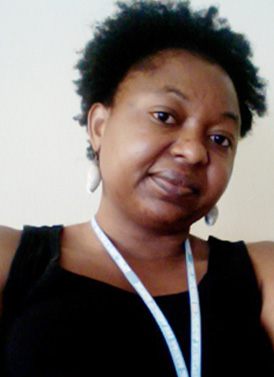
Kashindi:
1. Please tell us about yourself.
I am Selma Beata Magano, Naimhwaka, but my family and close friends mostly call me “Naita” (one of the many names I inherited from my great-great grandmother who I was named after). I was born and grew up in Onhokolo Village in Ombalantu. I am a down to earth person, and believe that nothing is impossible in life. I am a qualified Registered Nurse, but have shifted to public health field some years ago.
In 2010, I was awarded the Fulbright PEPFAR Foreign Scholarship by the US government, which made it possible for me to study for a Master degree in public health.
2. What are u studying and where?
Master Degree in Public Health, concentrating in International Health and Development, at Tulane University, New Orleans, USA.
3. Why do people get sick in Namibia?
People get sick due to many different factors. Distal and intermediate factors such as socioeconomic factors, social status, education, environment and behavioral factors determine our health status. These determinants are most likely to lead to proximal cause of death such as under nutrition, infectious diseases and injury.
I would therefore say the main leading causes of illness in Namibia are poverty, lack of access to health care services, inadequate availability of clean water (especially in rural areas), and proper sanitation, which are likely to increase the risk of acquiring diseases (especially infectious diseases).
The other factor that plays a big role is ignorance. Most people get sick because of ignorance. E.g. some people wait till last minutes to seek health care or some do not even protect themselves from situation that could make them sick while they are aware of the risk. A good example is prevention of Malaria…. How many people use mosquito nets to prevent being bitten by mosquitoes?? Very few indeed! Some even opt to use the mosquito nets (distributed by Min of Health of course) for fishing instead of protecting themselves.
4. Is there a relationship between the food that we eat and the diseases that affect us?
Yes, for both infectious diseases and non-communicable diseases. Lack of sufficient food (with all necessary nutrients) can lead to a weakened immune system and malnutrition, which increase the chance of acquiring infectious disease, especially among children. Eating unhealthy food on the other hand can increase the chance of getting non-communicable diseases such hypertension and diabetes.
5. What is meant by international health?
International Health, also called Global Health is all about improving health and achieving equity in health for all people worldwide, reduction of disparities, and protection against global threats that disregard national borders. In simple words, it is all about promoting health for all at the global level!
6. Who is your role model?
I must say I have many, but my mom is number one, followed by my dad. My parents’ attitude toward hard work, family responsibility, and discipline has made me who I am today. Their emphasis on self-discipline from childhood has allowed me to regulate myself in my work and study, for which I am grateful to them.
7. What are the most difficult things that one experiences when studying abroad?
I think it differs from person to person, and it also depends on where you are studying. So in my case, it would be the challenge of adapting to the US education system. Their system is a bit different from ours and I had trouble in understanding some issues such as core course, and elective courses. But everything worked out well eventually.
8. Is there any other thing that you would like to share with us?
Please check out my blog on the following link: http://memenaita.blogspot.com/
I am trying to write more to share my experience as a Foreign Fulbright Scholar studying in USA.
Thank you for the interesting questions and for allowing me to share this little information.
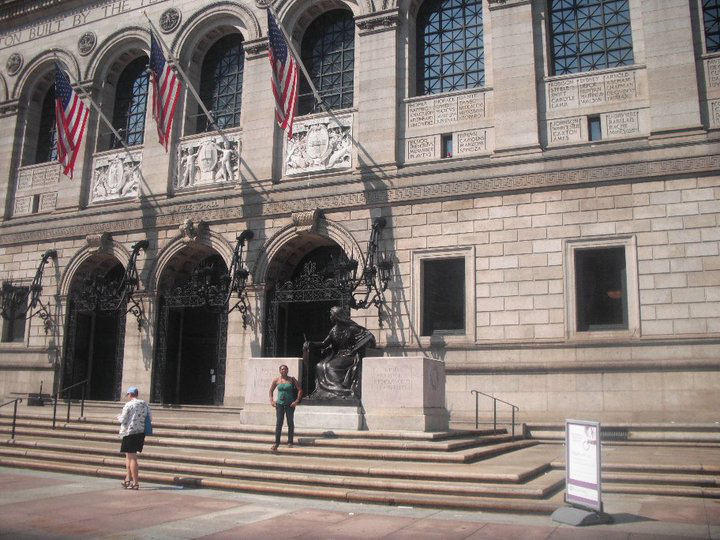
Boston Public Library, 2010
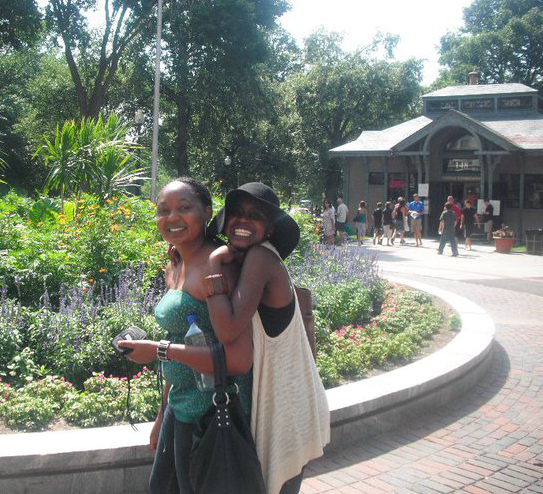
Naita and Kauna, another Fulbright Student in Boston, 2010
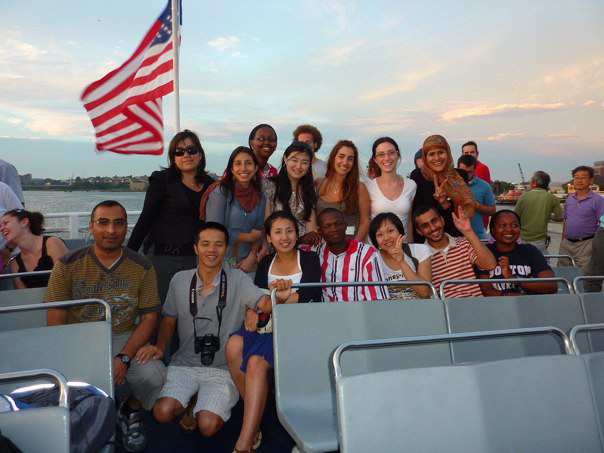
Fulbright Students in Boston, 2010
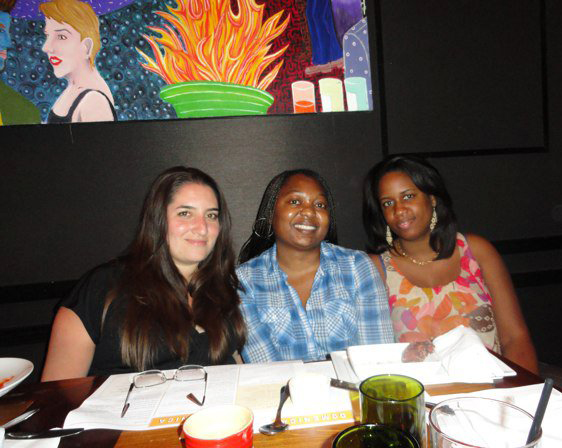
Naita with friends Selena (left) and Dominique (right) having fun, New Orleans 2011
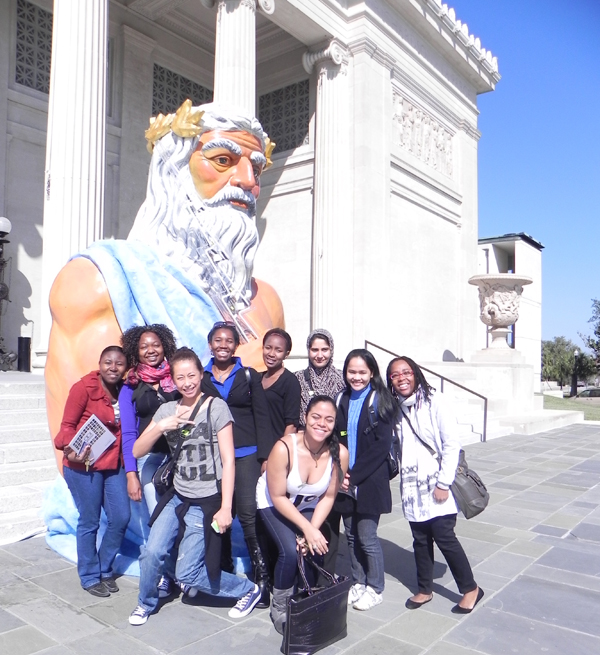
A group of foreign students at the Museum of Arts, New Orleans 2012
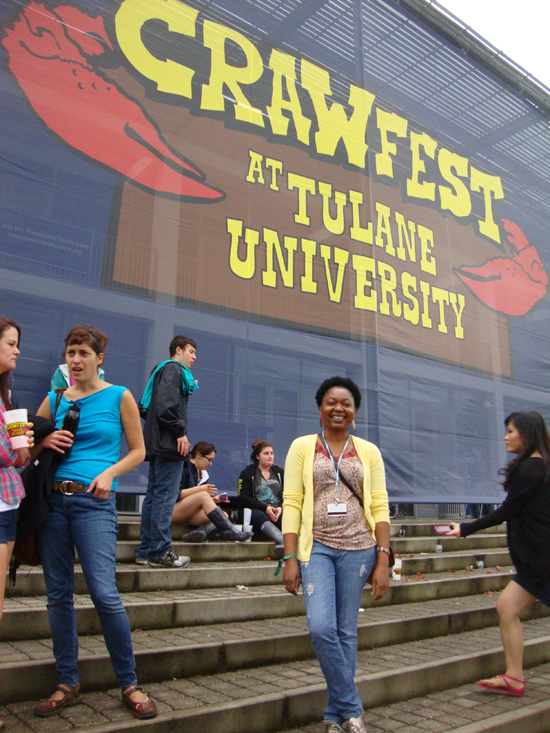
Naita at the Crawfish festival, Tulane University, New Orleans 2012
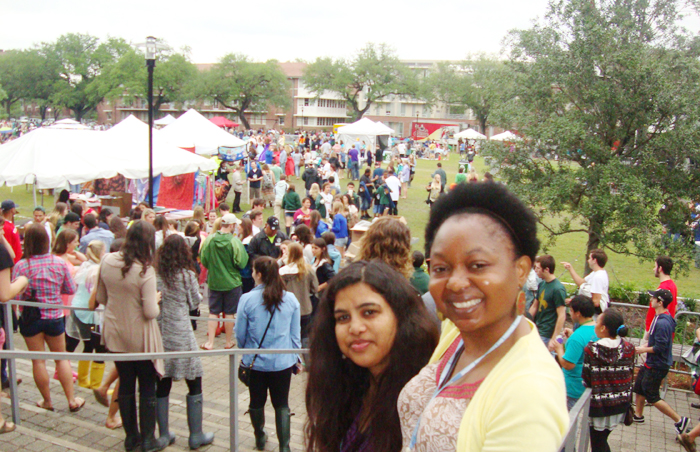
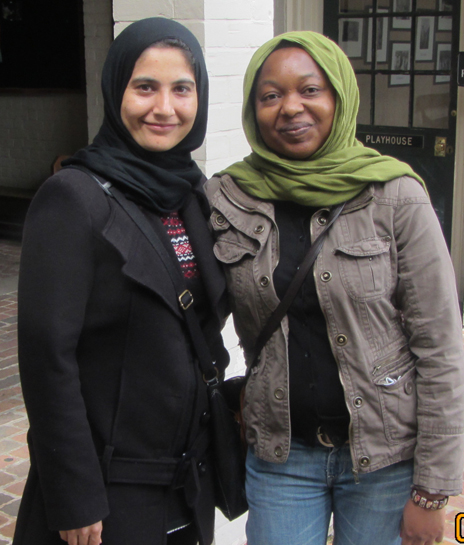
I had to try the veil of course! with her friend Palwasha, New Orleans 2012
STAY IN THE LOOP
Subscribe to our free newsletter.
Interview posted on 04 April 2023 Tuyeimo welcome to Namambe, I am excited to have you on the Show. I came across your name both online and offline countless times which made me curious to learn more about you, since the contribution that you are making to society, figuratively speaking is as good as building […]
Namambe Interview: 20 December 2022 I am Kashindi Ausiku, you Host from Windhoek, the Capital City of the Republic of Namibia. This is my last interview for the year 2022 and I would like to use this opportunity to wish all our participants and readers a Merry Xmas and a Prosperous New Year. This time […]
Interview posted on 26 November 2022 It is a great honour to have Ms Maria Shinyata as a Special Guest on the Show. I am Kashindi Ausiku (K) your host, right in Windhoek, the Capital City of the Republic of Namibia. I am thrilled to welcome Madam Maria Shinyata (M), a Namibian Professional Chef […]
It is a great honour to have Mr. Ambrosius Mwetwadha Agapitus as a Special Guest on Show. Ambrosius Mwetwadha Agapitus (79) is a former Director of Education Programmes from 01/09/1990. In June 1994 he was requested to take over the responsibilities of what was known as Windhoek Education Region (in Khomas, Omaheke and Otjozondjupa political […]


